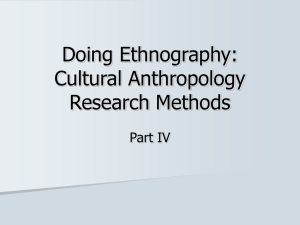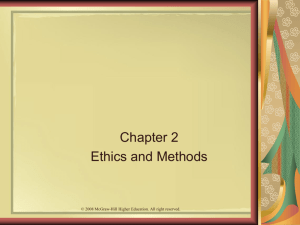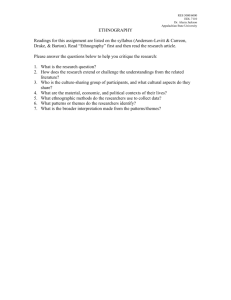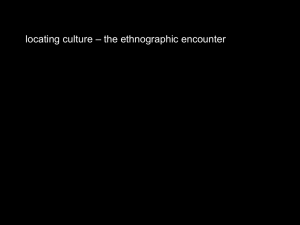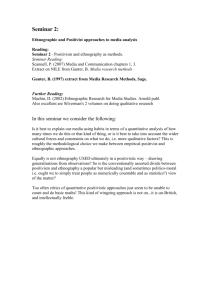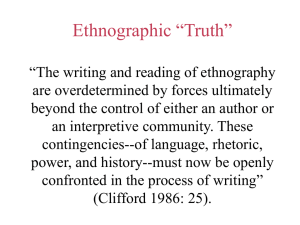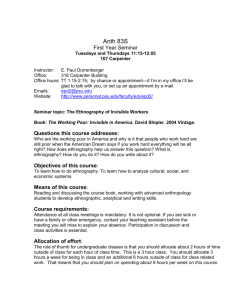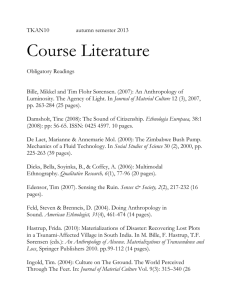索书号:C912.4-532/ W956/ 1984(HF) Writing Culture:The Poetics
advertisement
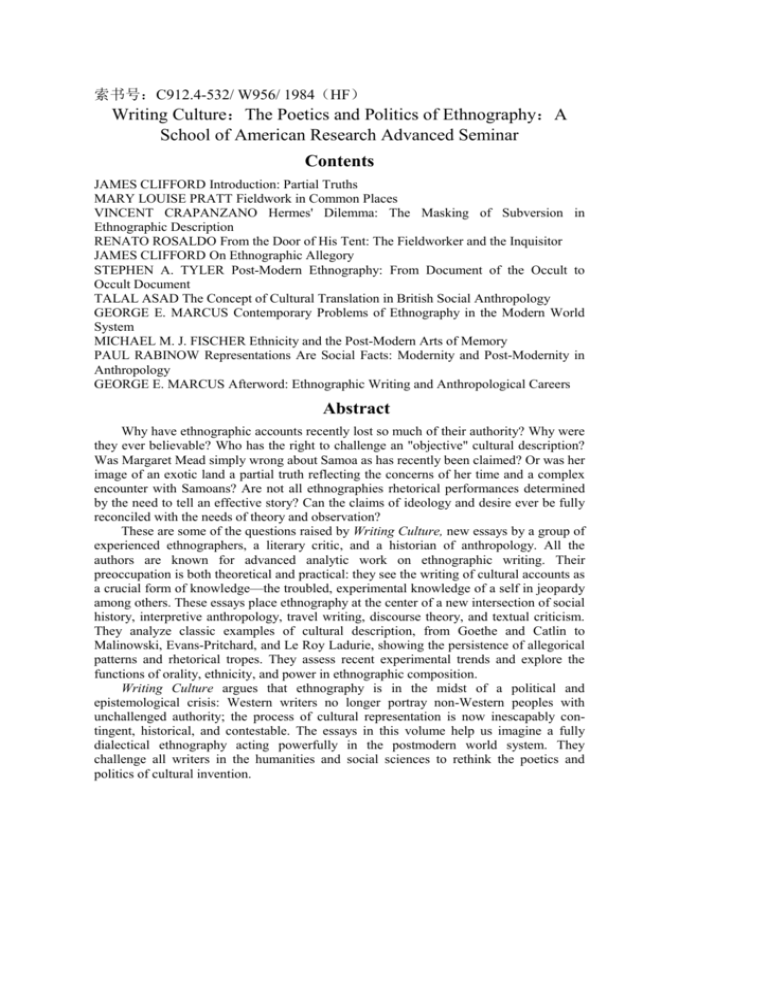
索书号:C912.4-532/ W956/ 1984(HF) Writing Culture:The Poetics and Politics of Ethnography:A School of American Research Advanced Seminar Contents JAMES CLIFFORD Introduction: Partial Truths MARY LOUISE PRATT Fieldwork in Common Places VINCENT CRAPANZANO Hermes' Dilemma: The Masking of Subversion in Ethnographic Description RENATO ROSALDO From the Door of His Tent: The Fieldworker and the Inquisitor JAMES CLIFFORD On Ethnographic Allegory STEPHEN A. TYLER Post-Modern Ethnography: From Document of the Occult to Occult Document TALAL ASAD The Concept of Cultural Translation in British Social Anthropology GEORGE E. MARCUS Contemporary Problems of Ethnography in the Modern World System MICHAEL M. J. FISCHER Ethnicity and the Post-Modern Arts of Memory PAUL RABINOW Representations Are Social Facts: Modernity and Post-Modernity in Anthropology GEORGE E. MARCUS Afterword: Ethnographic Writing and Anthropological Careers Abstract Why have ethnographic accounts recently lost so much of their authority? Why were they ever believable? Who has the right to challenge an "objective" cultural description? Was Margaret Mead simply wrong about Samoa as has recently been claimed? Or was her image of an exotic land a partial truth reflecting the concerns of her time and a complex encounter with Samoans? Are not all ethnographies rhetorical performances determined by the need to tell an effective story? Can the claims of ideology and desire ever be fully reconciled with the needs of theory and observation? These are some of the questions raised by Writing Culture, new essays by a group of experienced ethnographers, a literary critic, and a historian of anthropology. All the authors are known for advanced analytic work on ethnographic writing. Their preoccupation is both theoretical and practical: they see the writing of cultural accounts as a crucial form of knowledge—the troubled, experimental knowledge of a self in jeopardy among others. These essays place ethnography at the center of a new intersection of social history, interpretive anthropology, travel writing, discourse theory, and textual criticism. They analyze classic examples of cultural description, from Goethe and Catlin to Malinowski, Evans-Pritchard, and Le Roy Ladurie, showing the persistence of allegorical patterns and rhetorical tropes. They assess recent experimental trends and explore the functions of orality, ethnicity, and power in ethnographic composition. Writing Culture argues that ethnography is in the midst of a political and epistemological crisis: Western writers no longer portray non-Western peoples with unchallenged authority; the process of cultural representation is now inescapably contingent, historical, and contestable. The essays in this volume help us imagine a fully dialectical ethnography acting powerfully in the postmodern world system. They challenge all writers in the humanities and social sciences to rethink the poetics and politics of cultural invention.
